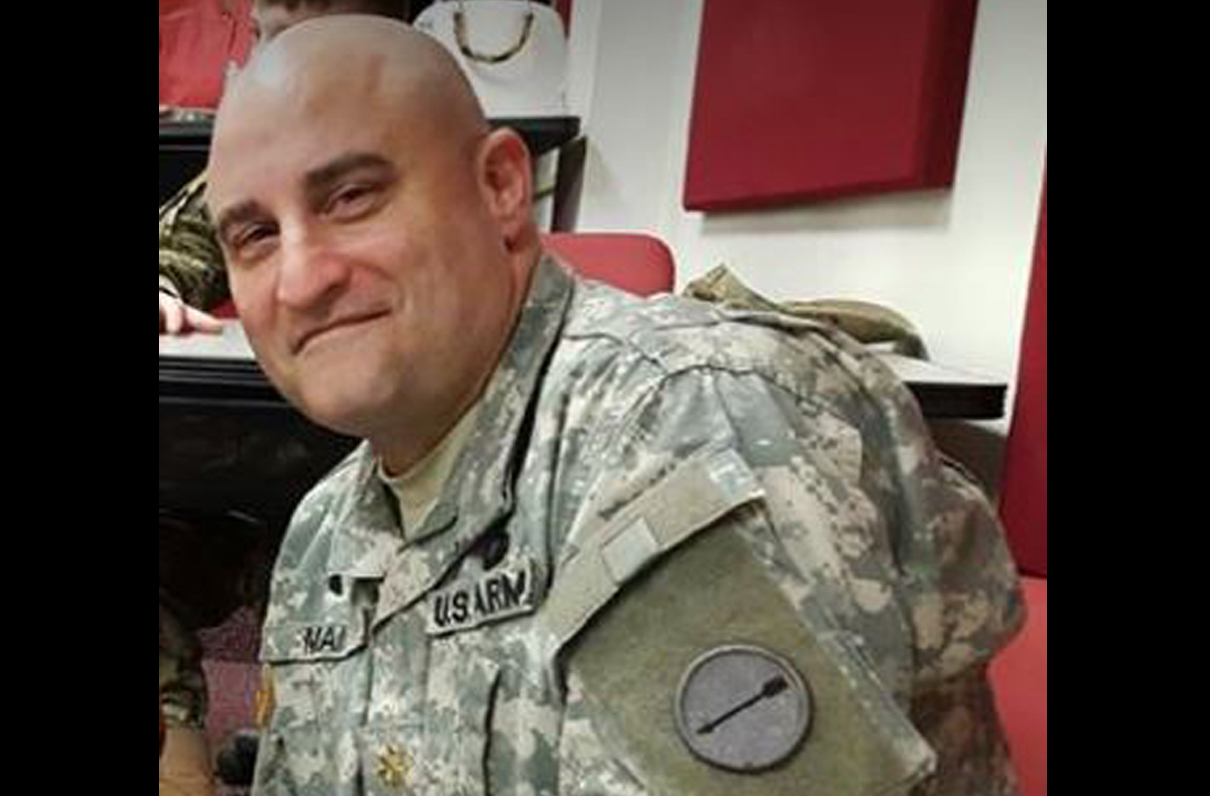By Kristin Davis
After 30 years of alcohol abuse, retired Army Maj. Jason Main had finally hit bottom. Filled with indescribable despair, alone in his bathroom, he wondered whether the world would be better off without him.
It was June 14, 2015. His young daughter knocked on the door. She wanted a bedtime story. Main looked in the mirror for the first time in a year.
“I ended up reading my daughter that story,” he said. “The next day, I made a phone call.”
Soon, Main was sitting in a 12-step program meeting and sharing the story of his fledgling sobriety in the hope of inspiring others with drug and alcohol addiction, a disease that has been closely linked with both depression and suicide.
Veterans are 1 1/2 times more likely to die by suicide than those who have not served in the military. According to Department of Veteran Affairs' 2016 data, 20 veterans a day died by suicide and the rate among veterans ages 18 to 34 increased substantially.
Main wants to be part of the solution.
Since that summer day three years ago, he has made it his mission to help others struggling with addiction. He's spoken to thousands of patients, soldiers and instructors at schools, rehab centers and intervention training programs. He's started a not-for-profit called Life House Recovery of Maryland and owns a sober transition house, supporting disabled veterans. He also volunteers at a prison, interacting with incarcerated veterans.
Main, whose marriage ended in divorce during his recovery, is also newly married and has rebuilt his relationship with his children.
“I have no desire to go back to the way it was,” he said. “I've got too much to lose.”
Q: Describe what alcoholism was like for you.
A: This is the only disease that tells you, you don't have one. Its job is to isolate you and to kill you, whether it's a car crash or self-inflicted or just by your liver shutting down. I could drink 30 beers a day. I made lots of bad financial decisions. I made lots of bad emotional decisions.
Q: When did you realize you had a problem?
A: I've always known I was an alcoholic. I wasn't in denial. I was in refusal: I knew I had a problem, but I refused to do anything about it. I got a DUI in 1996. I went to an alcohol education class. I went to some 12-step meetings. I never really paid attention. I told myself I was not really like these people.
Q: What was recovery like?
A: I already had 50 days of sobriety when I walked into rehab at Fort Belvoir Army Community Hospital in 2015, but I was about to have zero days. I was having too many emotional events at once. I've been sober 40 months. It's still a process.
Q: How did you start helping others?
A: I had a mentor who did a lot of service work. When I was 19 days sober, he asked me to come to a treatment facility with him. I told my story. A lot of the patients got up afterwards and thanked me. They asked for my phone number. I had a feeling that maybe I was making a difference.
Q: What would you tell someone struggling with addiction?
A: The hardest thing in the world is to accept the fact that you are powerless over drugs and alcohol and that you cannot do this alone. To my fellow officer community: There is no shame in asking for help, whether serving or retired.
